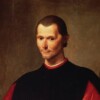“Intuitions come first, strategic reasoning second.”1 Intuition is the elephant, heading in the direction it pleases. Reason is the rider, theoretically capable of steering the beast, but more often carried along by it. Or to take another of Haidt’s inspired metaphors, while we may believe Reason is a detective ferreting out the truth, it is usually more like a press secretary, justifying to ourselves and others the choices we have already made through intuition. This insight helps to explain why intelligent people often come to opposite moral conclusions, why moral philosophers typically behave less virtuously than other people,2 and why so many attempts to change people’s minds have the effect of galvanizing their original positions.
Though some of Haidt’s metaphysical assumptions are questionable, to say the least (more on that below), his basic thesis about the primacy of intuition is compellingly argued, and it provides a helpful framework for navigating life in a post-Christian world. “Post-Christian” does not mean, of course, that the Church is on her way out; Jesus Christ is still the Alpha and the Omega, and his Bride will be ready and waiting for him at the end of time. Rather, it means simply that most people’s intuition is that Christianity is bad. In the 1950s, Fulton Sheen, lecturing in full priestly attire, had one of the most popular shows on television. Today, when people see a priestly collar, their intuitive reaction is likely to be “authoritarian hypocrite” and “abusive pedophile.” Similarly, it is hard to imagine modern Hollywood depicting a virtuous and winsome Protestant heroine like Rose Sayer, Katharine Hepburn’s character in The African Queen (1951).
As I was working on this piece, I had an experience that confirmed Haidt’s thesis. A couple knocked on my door and wanted to talk up a certain political candidate. I said, with what I intended as a friendly smile, “I’m not interested, thanks,” and closed the door. I’m not defending my action; the couple seemed pleasant enough and obviously committed to their cause, and perhaps I should have been more welcoming. But I happen to find door-to-door solicitations from strangers intrusive and threatening, especially since the one time I decided to be nice and let a stranger talk me into donating money, it turned out to be a scam. So, the net effect of the encounter was to turn my elephant away and make me less likely to vote for their candidate.
How, then, can Christians share the great treasure we have found without inspiring the intuitive revulsion that makes people armor up against us?
Malign Psychological Syllogisms
We can start by recognizing that there are two main reasons why people’s elephants turn away from Christianity. One is rooted deep in our fallen human nature. The other, however, we can and should change.
The first intuitive barrier is a valid syllogism based on a false major premise: “I have the right to do whatever I want; Christianity places limitations on my freedom; therefore, Christianity is bad.” The impulse toward self-gratification and rebellion is the basis of every sin from Eden on, manifesting in various ways throughout human history. Yet our WEIRD culture (Western, educated, industrialized, rich, and democratic) exacerbates this impulse, creating the illusion that expressive individualism is the summum bonum (cf. Mt 19:24). Especially when enflamed by advertising, our instincts tell us that to have more of the things of this world—wealth, power, fame, pleasure—will make us happier, and that all would be well if we could only achieve full control and independence. This makes it particularly hard to swallow the paradoxical Christian teaching that true happiness and freedom come from the exact opposite, from emptying ourselves as Jesus and Mary did and delighting in our total dependence on God.
The other intuitive barrier is a syllogism whose premises are (sadly) often true, though its logic is faulty: “[Group or person X] is hostile to me; [group or person X] is Christian; therefore, Christianity is bad.” Haidt points out that the determining factor in people’s openness to seeing things in a new light is personal relationship:3
When does the elephant listen to reason? The main way that we change our minds on moral issues is by interacting with other people…. When discussions are hostile the odds of change are slight. The elephant leans away from the opponent, and the rider works frantically to rebut the opponent’s charges.
But if there is affection, admiration, or a desire to please the other person, then the elephant leans toward that person and the rider tries to find the truth in the other person’s arguments.
That is why the entire Culture War, one of Satan’s masterpieces, is so missiologically disastrous and dangerously counterproductive. As C. S. Lewis remarked, “Put first things first and we get second things thrown in: put second things first and we lose both first and second things.” Christians’ “first thing” is for every person to come to know from the heart, “I am God’s beloved”; our “second thing” is for people to modify their behavior in accordance with God’s instructions for happiness. When we put the second thing first—that is, when we try to strongarm people into adhering to Christian morality against their will, especially in realms where the Culture War rages—it kicks people’s elephants and triggers a fierce backlash.
Redemptive Intuitions from the Dawn of Our Race
Nevertheless, there is cause for hope in three intuitions so unshakable that they would better be described as “intuitive certainties.” While they cannot be proven, no experience, intellectual fashion, or anything else can dislodge them. They are part of our inalienable patrimony as human beings.
Our first intuitive certainty is that objective truth is real. If I say that John F. Kennedy died of a heart attack in 1974 and you say that he was assassinated in 1963, even if some people in the grip of ideological fanaticism may claim to believe that “my truth” and “your truth” are of equal value, no one really does. Christianity ultimately stems from an objective, historical truth claim: that Jesus of Nazareth rose from the dead, not just metaphorically, but physically and permanently. The amount of evidence for this is enormous, far more than for other events in the ancient world whose historicity is unquestioned. Except at the pachydermal level, there is no conflict here with science or reason. For the God whose sheer exuberant love created the universe ex nihilo, the resurrection, like the many miracles that precede and follow it, would be child’s play.
Haidt, a professed atheist, starts from the intuition shared by most modern academics: religion is a purely human phenomenon, not a response to the divine. He justifies this intuitive belief with Darwinian reasoning about how religion helps human societies survive and thrive:4
Our ability to believe in supernatural agents may well have begun as an accidental by-product of a hypersensitive agency detection device, but once early humans began believing in such agents, the groups that used them to construct moral communities were the ones that lasted and prospered.
Yet the fact that Christianity is, on the whole, good for us—which Haidt, to his credit, fully acknowledges and compellingly documents—says nothing about whether it comes from below or from above. If anything, it would seem odd for an objectively false faith to give rise to so many goods even non-believers now take for granted, such as hospitals, universal education, and the idea of human dignity and equality under the law. There is reason to hope that Haidt’s intellectual curiosity and honesty will eventually lead him to the discovery that Jesus Christ is God the Son, the hypothesis that makes the best sense of the data.
Our second intuitive certainty is that somehow our world is not as it should be—that in many respects it is, as my then toddler son once prophetically announced from his carseat, “NOT NICE!” Though this is often brought out as an argument against the existence of a loving all-powerful God, it is actually a powerful argument for Christianity, the one faith that puts the problem of evil at its center. The cross and resurrection, where the greatest evil leads to the greatest good, is the only satisfying answer to that most fundamental of philosophical and theological problems. Pope Benedict XVI made this point forcefully in Saved in Hope (Spe Salvi 43):
I am convinced that the question of justice constitutes the essential argument, or in any case the strongest argument, in favor of faith in eternal life. The purely individual need for a fulfillment that is denied to us in this life, for an everlasting love that we await, is certainly an important motive for believing that man was made for eternity; but only in connection with the impossibility that the injustice of history should be the final word does the necessity for Christ’s return and for new life become fully convincing.
Furthermore, even as we crave to be loved, we also sense that at some basic level we are “NOT NICE.” Shame is always just around the corner, ready to leap upon us at the smallest provocation. We long for a Savior who will free us from our shame, an Advocate who will stand up for us no matter what, and a Redeemer who will somehow set things right. As soon as we begin to ask for this, even wordlessly, it opens a window through which grace can enter.
Finally, our hearts insistently tell us that, despite the apparent evidence to the contrary, there is such a thing as joy. While the many idols we construct may produce temporary euphoria or contentment, the Holy Spirit has the monopoly on real and lasting joy—not the cheerfulness of the salesman softening you up for the pitch, but the joy the world cannot give. Despite her decades of internal darkness and pain, Mother Teresa experienced this joyful peace at the deepest level of her being, and she reminds us, “Joy is a net of love by which you can catch souls.”
It also has the capacity to turn elephants.
Footnotes
- Jonathan Haidt, The Righteous Mind: Why Good People are Divided by Politics and Religion (New York: Vintage Books, 2012), 82 (italics in original). The present essay will not attempt to describe the circuitous path that led Haidt to this somewhat disturbing conclusion, except to say that his experiments are varied and fascinating. The book is wide-ranging, lucidly written, and well worth a careful read.
- “[E]xpertise in moral reasoning does not seem to improve moral behavior, and it might even make it worse (perhaps by making the rider more skilled at post hoc justification),” Haidt, The Righteous Mind, 104. (If there are any moral philosophers among my readers, be assured that Haidt is not talking about you, just about your colleagues.)
- Haidt, The Righteous Mind, 79-80.
- Haidt, The Righteous Mind, 317.
























Thank you.
Your description of Haidt’s book (which I have not read) brings to mind two of Blaise Pascal’s *pensees*: “The heart has its reasons of which reason knows nothing” and “We know the truth not only through our reasons but also through our heart. It is through the latter that we know first principles, and reason, which has nothing to do with it, tries in vain to refute them”. It also alludes to Gladwell, “Blink”, Plantinga, “Not the Way It’s Supposed to Be”, Schulz, “Being Wrong”, &c.–a sign not only of a worthwhile book, but of a thought-provoking essay. Thanks so much!
Pax Christi.
fred putnam
Dr. Hejduk,
Thanks for this very effective use of Haidt to describe some of the core experiences we all share in this moral world. You incorporated his ideas well to give us a insightful diagnosis of what are the “reasons why people’s elephants turn away from Christianity.” But your moral health assessment ends hopeful. I plan to discuss this article in my undergrad ethics courses where (even at our Christian institution) many of my students’ elephants turn away from Christianity.